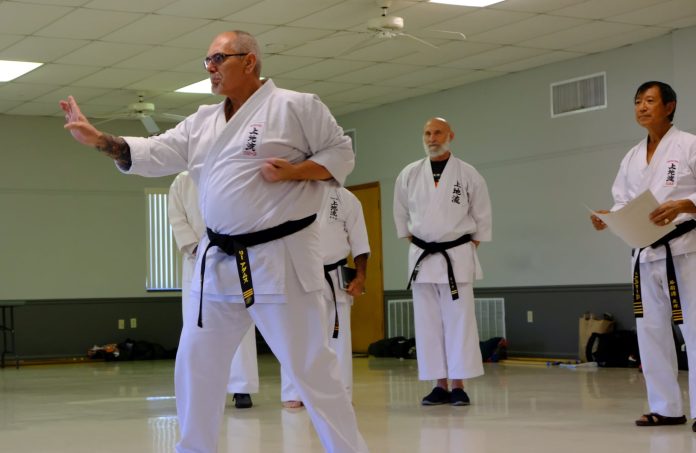“If we look at Uechi dojos across the globe, there are many organisations with some very talented instructors/coaches. If we stood all these side by side and watched their kata, they would all be recognisable as we would expect, but closer viewing shows us some minor nuances influenced by the individual’s journey of exploration of their martial art, whether it be from cross-training or from research. The IUKF embraces this and, through seminars, encourages the sharing of ideas. Uechi by rote is where they want to be; others will want to explore connections and objectivity none of these should stop an association or federation from growing.
Influences on our preferred art also come from outside the dojo; for example, many of us are business professionals, and we will be aware of the 5 whys, which is an iterative interrogative technique used to explore the cause-and-effect relationships underlying a particular problem. The primary goal of the technique is to determine the root cause of a defect or problem by repeating the question “Why?”. Each answer forms the basis of the next question. The “five” in the name derives from an anecdotal observation on the number of iterations needed to resolve the problem.
Not all problems have a single root cause. If one wishes to uncover multiple root causes, the method must be repeated asking a different sequence of questions each time.
The method provides no hard and fast rules about what lines of questions to explore or how long to continue the search for additional root causes. Thus, even when the method is closely followed, the outcome still depends upon the knowledge and persistence of the people involved.
An example of analysing a kata
Why? – do we do the kata this way. (First why)
Why? – does this move show a technique one way in kata but different in bunkai
Why? – do we do the same move in different directions
Why? – don’t we look at the relationship between kata and Bunkai
Why? – is my kata not effective
I would wager that we do this unconsciously, and many simply view this as ‘My take on it.’ In my opinion, this is the key to the enjoyment and usefulness of seminars, where we can explore our own training against an alternative view.
Regards,
Lee Adams – 8h Dan Kyoshi, IUKF GB




